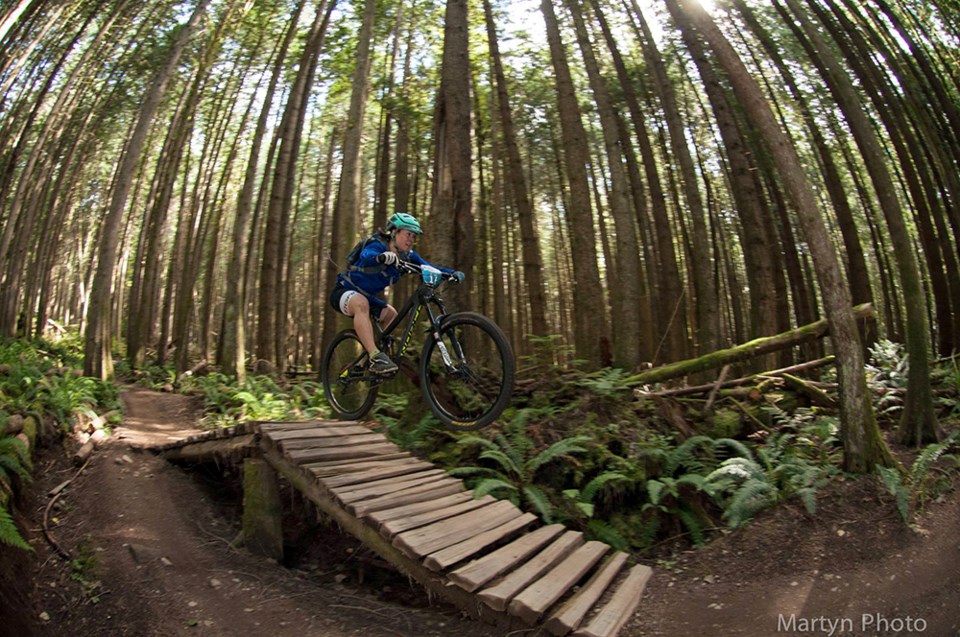It likely isn’t news to Squamish’s two-wheeled warriors that mountain biking is a huge boon to the local economy, but a new report confirms it.
Visitor spending contributed almost $10 million to Squamish’s economy in 2016, according to the Mountain Biking Economic Impact Study presented by Martin Littlejohn, of the Mountain Bike Tourism Association, and Jeff Cooke, of the Squamish Off-Road Cycling Association, on Tuesday afternoon at the community development standing committee.
The study outlines results of approximately 450 surveys that were done with mountain bikers on local trails last summer.
This study follows a similar one done in 2006.
Approximately 25,000 riders made a total of 200,000 rides in Squamish in 2016; A total of 22,820 were out-of-town riders and they made 99,000 rides while here.
Of out-of-town visitors, about 44 per cent stayed overnight, according to the study, compared with 21 per cent who spent the night in 2006.
“With more trails and more notoriety with the trails and better loops it gives people a reason to stick around,” Cooke said.
Among locals, around 80 per cent said mountain biking was an important reason why they moved to Squamish.
The industry creates about 70 local jobs in tourism, according to the study. Currently 48 Squamish businesses employing 148 employees are related to mountain biking, a huge jump from the four businesses related to the industry in 2006.
The popularity of mountain biking means it is time for more formal support for biking, Cooke said.
He compared local mountain biking to the goose that lays the golden egg.
“It is continually laying golden eggs for us and they get bigger and bigger every year, if we take care of it,” he said. “If we start plucking the goose to make a down pillow, we are not feeding it, we get in trouble.”
Cooke said local trails should be given primary consideration when thinking about development and other land use decisions and argued for formalized trail planning.
“We have to think it is as important as electricity lines and sewers and pipes,” he said.
The volunteer-run SORCA , which builds and maintains Squamish’s 173-kilometre trail network, currently receives $75,000 from the District in grant money that SORCA must return to seek from the District each year.
Cooke said he’d like to see a formal funding structure for mountain biking and suggested when eventually a community forest is up and running that, perhaps, funds from that go directly back into mountain biking.
The District of Squamish is currently working in partnership with the Squamish Nation to hopefully create a community forest, according to Mayor Patricia Heintzman.




